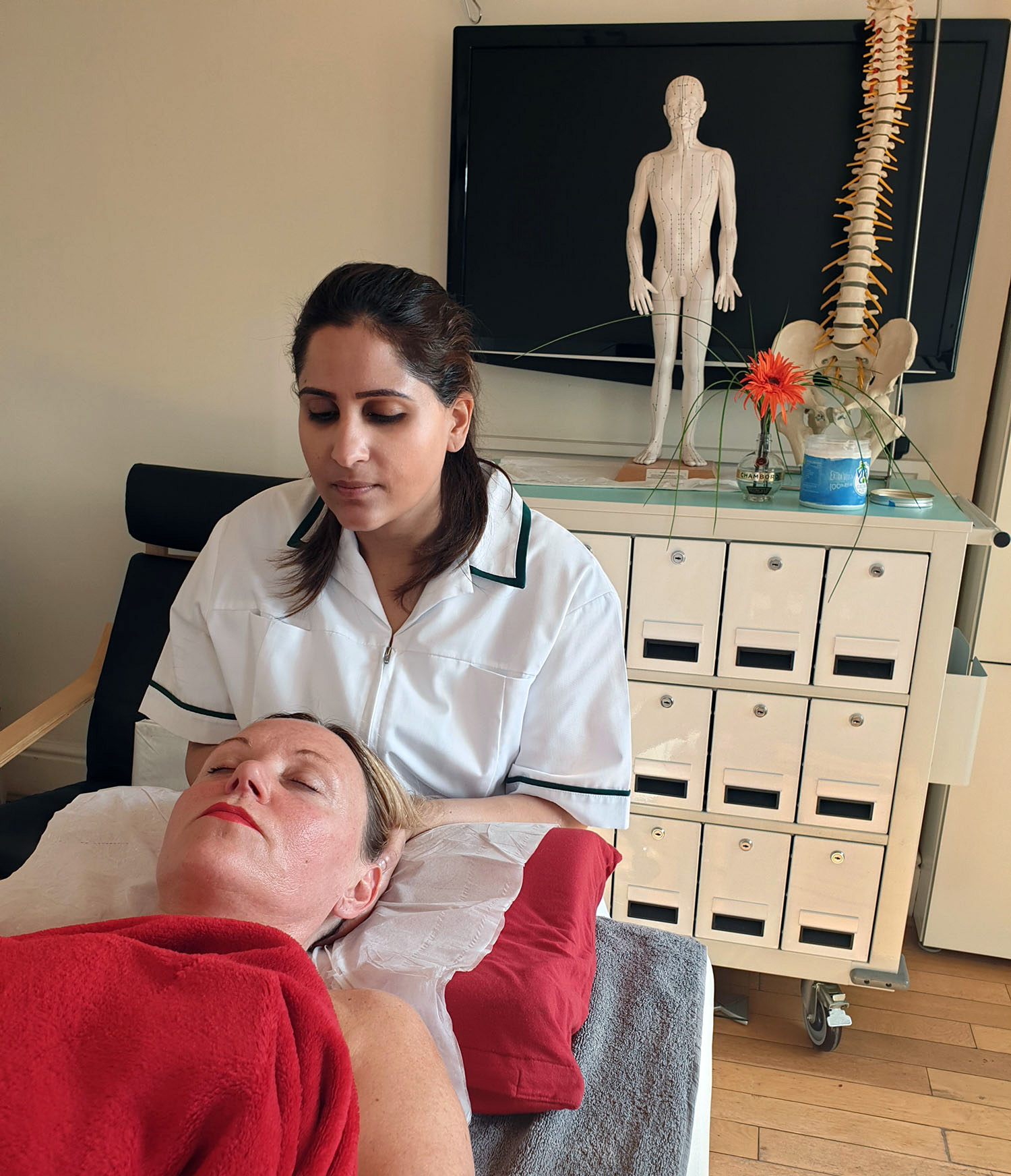What is Craniosacral Therapy?
Cranial or Craniosacral Therapy is a form of osteopathy, which focuses specifically on the nervous system and the adjacent structures.
This technique has practically two aspects, a diagnostic and a therapeutic part. The diagnostic part can detect and establish blockades, stagnations tensions, and imbalances of the cranial rhythm. These disturbances and imbalances in the cranio-sacral rhythm can be caused by muscle tension from stress, fear, anxiety, physical and emotional trauma, etc. Whilst an imbalance in cranial rhythm does not show an immediate clinical effect or induce direct pathology or illness, it is a continuous interference with the optimal, physiological function. It is like sand in the engine.
Craniosacral therapy is a form of manual treatment and is gentle, yet an extremely effective approach.
What is our approach? How does Craniosacral Therapy work?
William Garner Sutherland an American osteopath identified in 1899 movement between the bones even of an adult skull (the cranium). He was able to identify a deep regular rhythm inside the cranium of each of his patients. He experimented with different manual mechanisms to compress and release individual cranial bones and noticed the normalization of the rhythm and with it, remarkable improvements not just in physical, but also in mental symptoms of his patients.
Diligent observation and experimentation lead to the developed of a new manual treatment technique called Craniosacral Therapy. It is this rhythm, which forms the basis of the craniosacral treatment. With gentle stimulation techniques the therapist can influence the cranial rhythm, which in turn, influences and corrects the minute movements of the cranial bones and the cerebro-spinal fluid. As interconnected systems, the improved cranial rhythm, influences in turn the lymphatic flow of the entire body.
Elimination of any stagnation or disturbance in these three circulatory systems, blood, lymphatic and cerebrospinal fluid is essential to eliminate metabolic debris as well environmental toxins and waste products.

What are your benefits from choosing our approach?
Experienced practitioners are able to assess and recognize restrictions and disturbances in the quality of the cranial rhythm by applying very gentle pressure on the head and neck.
With a clam, linear flow, the entire system and certainly the autonomic nervous system calms down, reducing physical, mental and emotional stress, decreasing muscle tension and pain.
- CFS /ME chronic fatigue syndrome and myalgia encephalomyelitis
- Fibromyalgia
- Post-viral-fatigue
- Migraine, tension headache, persistent daily headache
- Cervicogenic headaches
- digestion problems
- back pain
- neuralgia
- pelvic pain
- sciatica, muscle cramps and tension
- Stress and inability to relax
- pregnant women,
- babies and children.
It has also been found to be beneficial to those suffering from stress, anxiety or psychological trauma. Many people find it valuable as an ongoing support to their busy lives, helping to manage life’s many challenges. Whether these stressors are a physical injury, infection or emotional factors, it is acknowledged that all traumas and tensions can manifest in body tissues as restriction, stagnations and constriction of some kind.
During the initial consultation we will take the medical history. We will discuss the impact your symptoms have on your life, how the treatment works, and the research supporting this treatment approach. If the patient understands, the first treatment can be given during the initial visit. The treatment protocol remains flexible, dynamic, and individually adjusted to your needs.
I am confident that you will enjoy the treatment and its outcome
Book Your Appointment
Contact Info
Need to discuss before treatment?

